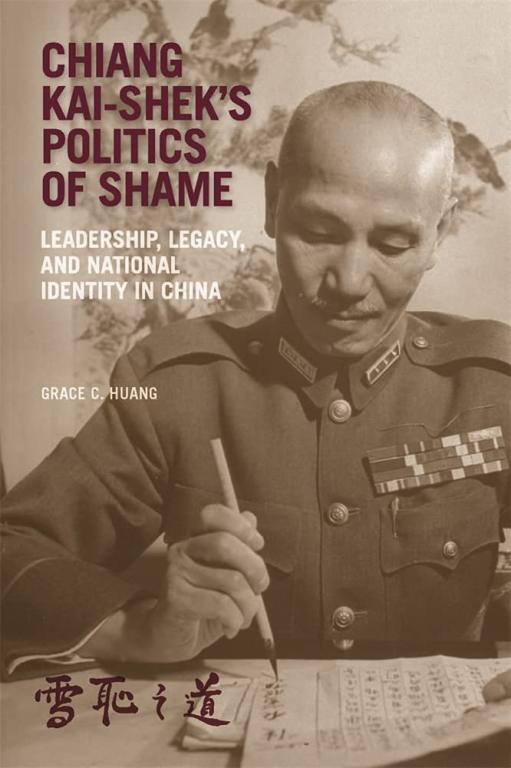 I recently read Grace Huang’s Chiang Kai-Shek’s Politics of Shame: Leadership, Legacy, and National Identity in China (2021). Here’s my review of the book
I recently read Grace Huang’s Chiang Kai-Shek’s Politics of Shame: Leadership, Legacy, and National Identity in China (2021). Here’s my review of the book
Chiang’s Leadership and Legacy
Chiang Kai-Shek led the Chinese Nationalist government from 1928-1949 before Communists forced him from the Mainland to Taiwan, where he served as its president from 1950-1975. A multitude of commentators has assessed his decision-making and political impact. Until the 1990s, significant primary sources about Chiang Kai-Shek’s tenure were unavailable to the public. Grace Huang’s recent work draws from such documents to paint of portrait of Chiang’s thinking and strategizing. What emerges is noteworthy.
Huang explores varied ways that Chiang Kai-Shek used shame to shape a collective story about the identity and future of China. Until now, this subject has not attracted the attention of scholars. Yet, Huang’s work not only develops our knowledge of China in the early 20th century; it also helps us understand much of what has shaped the modern Chinese psyche.
Furthermore, the book causes readers to reflect on how other leaders, past and present, attempt to use shame to forge a national identity and a more prosperous future.
Avenging Humiliation
A few examples illustrate how Huang presents her ideas. She highlights Chiang’s own experience of shame and the sources from which he drew inspiration. It would be a gross understatement to say that the Japanese 1928 incursion into Jinan and their ensuing humiliation of Chiang’s army were formative events. Until his death, Chiang wrote daily in his journal (with few exceptions) in a section that he labeled “avenging humiliation.”
He strategized how China could throw off the shame inflicted on them by Japan and other imperial powers. Ancient literature fueled this single-mindedness, especially the tale of the Chinese king Goujian (5th century BCE). Several times, he endured various political setbacks because he felt his own suffering would eventually help China restore its honor.
Leading with and through Shame
Chiang utilized shame to motivate the Chinese people as well.
He had no patience for the citizenry’s passivity or indifference concerning China’s humiliations. Chiang chastised the people for acting and dressing in uncivilized ways that would evoke scorn from foreigners. Ironically, by reminding the people of national humiliation, Chiang sought to foster national pride in the form of nationalism.
He was concerned with nearly every aspect of Chinese life, from the style of women’s clothing to the way people washed their clothes. Each behavior reflected or detracted from Chiang’s perception of a modern (thus respectable) person in different respects. He appreciated “foreign” things so long as they did not become instruments of oppression. Hence, Chiang rejected communism as “foreign,” originating from Europe and propagated by Russia.
Chiang Kai-Shek’s Politics of Shame has six chapters spanning 169 pages. Chapters 1-4 specifically focus on Chiang’s leadership and use of shame. Chapters 5 contrasts Chiang with other Chinese leaders from the era (e.g., Yuan Shikai and Mao Zedong). Finally, Huang compares Chiang’s employment of shame with that of Mahatma Gandhi.
These chapters aptly contextualize both how shame’s use and its differing effects across multiple settings. Huang is keen to shows how circumstances complicate our attempts to assess these leaders and their use of shame.
Concluding Thoughts
The author does an excellent job providing historical background and simplifying complex historical dynamics that are critical for understanding Chiang’s life. Her introduction, conclusion, and appendix likewise orient readers who might otherwise get lost in unfamiliar details.
The book is not only full of historical gems that will interest readers. It also magnifies a similarity between Chiang and the Chinese Communist Party, who have since employed shame with frequency and expertise. I recommend Chiang Kai-Shek’s Politics of Shame to readers interested in Chinese history, political leadership, and the use of shame in national affairs.












